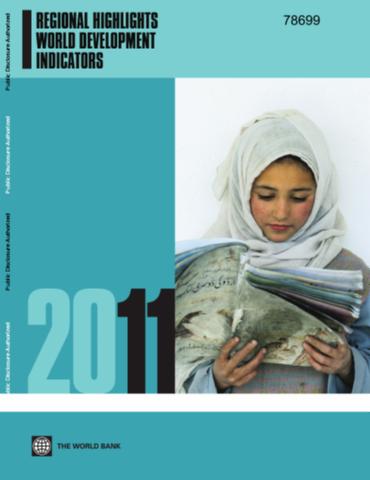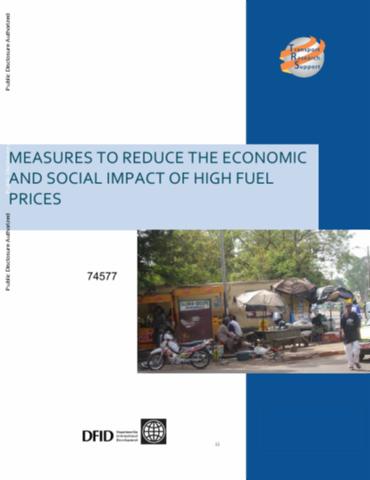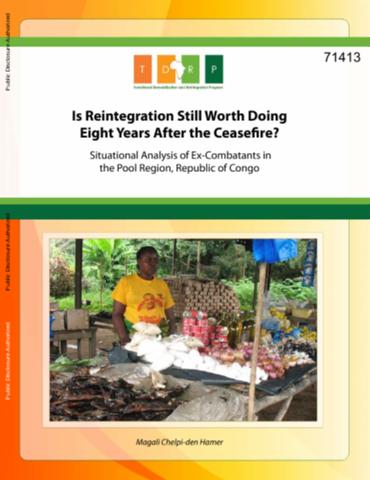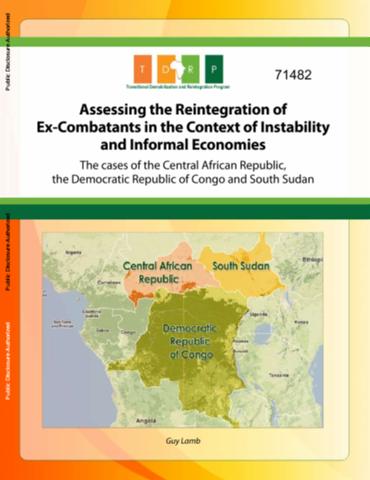The World Bank is a vital source of financial and technical assistance to developing countries around the world. We are not a bank in the ordinary sense but a unique partnership to reduce poverty and support development. The World Bank Group has two ambitious goals: End extreme poverty within a generation and boost shared prosperity.
- To end extreme poverty, the Bank's goal is to decrease the percentage of people living on less than $1.25 a day to no more than 3% by 2030.
- To promote shared prosperity, the goal is to promote income growth of the bottom 40% of the population in each country.
The World Bank Group comprises five institutions managed by their member countries.
The World Bank Group and Land: Working to protect the rights of existing land users and to help secure benefits for smallholder farmers
The World Bank (IBRD and IDA) interacts primarily with governments to increase agricultural productivity, strengthen land tenure policies and improve land governance. More than 90% of the World Bank’s agriculture portfolio focuses on the productivity and access to markets by small holder farmers. Ten percent of our projects focus on the governance of land tenure.
Similarly, investments by the International Finance Corporation (IFC), the World Bank Group’s private sector arm, including those in larger scale enterprises, overwhelmingly support smallholder farmers through improved access to finance, inputs and markets, and as direct suppliers. IFC invests in environmentally and socially sustainable private enterprises in all parts of the value chain (inputs such as irrigation and fertilizers, primary production, processing, transport and storage, traders, and risk management facilities including weather/crop insurance, warehouse financing, etc
For more information, visit the World Bank Group and land and food security (https://www.worldbank.org/en/topic/agriculture/brief/land-and-food-security1
Resources
Displaying 4536 - 4540 of 4905Real Options and Project Evaluation
In this paper authors present a preliminary approach to the evaluation of policies and projects based on current thinking on cost benefit analysis and real option methodology and the authors' recent work on the same subject. Authors start from the assumption that economic agents undertake investment projects in order to create and exploit opportunities for increasing profits, growth, wealth and, ultimately, their welfare. These opportunities are options, rights and not obligations to take some action in the future.
Regional Highlights World Development Indicators 2011
The primary completion rate for 7 countries-Benin, Burkina Faso, Guinea, Ethiopia, Madagascar, Mozambique, and Niger-more than doubled between 1991 and 2009. Still large differences persist between rich and poor within countries. In some low-income countries, such as Benin, the completion rates for the richest quintile are 95 percent or higher, but completion rates for the poorest quintile are 35 percent or less. And there is a 9 percentage point gap in the completion rates for boys and girls.
Measures to Reduce the Economic and Social Impact of High Fuel Prices
High volatility in the world prices of petroleum has been a characteristic feature of the global economy in the last decade. World petroleum prices increased four-fold between 2004 and 2008 and, and following a drop in prices in the second half of 2008, petroleum prices have been rising again, and they are several times higher than they were two decades ago.
Is Reintegration Still Worth Doing Eight Years After the Ceasefire?
Although official warfare in the Republic of Congo stopped more than eight years ago, the pool region has continued to feel the collateral effects of war until now at a scale largely ignored by the general public. The pool region is where the Ninjas, a group of local militias, originated during the civil strife and retreated to afterwards. Peace and recovery did not gain traction in the area until 2010/11.
Assessing the Reintegration of Ex-Combatants in the Context of Instability and Informal Economies
The implementation of effective Disarmament, Demobilisation and Reintegration (DDR) programmes in countries emerging from violent conflict are essential for building and maintaining peace and security. In many instances the disarmament and demobilisation of former combatants was achieved, but reintegration remained a challenge, due to the long-term focus and the substantial resources that are required for such a process to be successful.










